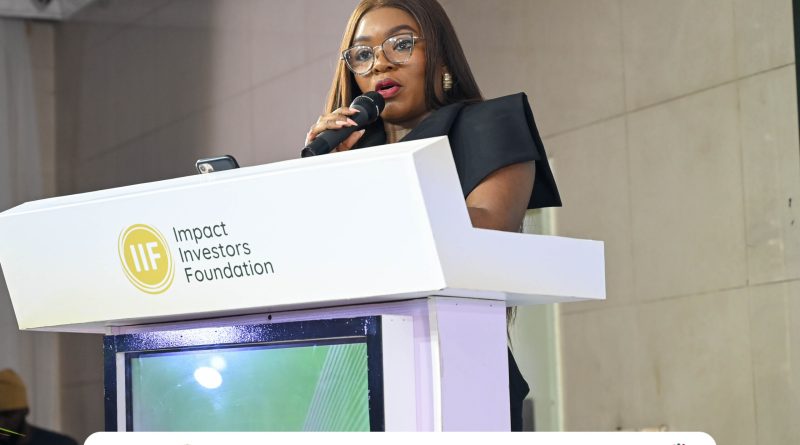BusinessDay Foundation calls for narrative-driven investments in Nigeria’s social enterprise space
Lily Adimefe, the executive director of BusinessDay Foundation, has urged investors and development partners to prioritise storytelling and visibility as key tools for scaling Nigeria’s impact economy.
Adimefe, who made the call at the 8th Annual Convening on Impact Investing (ACII) event organised by the Impact Investors Foundation (IIF), commended the Foundation for sustaining a platform that continues to shape the future of impact investing in Nigeria.
She described this year’s theme, “Strengthening and Scaling the Nigerian Impact Economy,” as timely and significant, noting that Nigeria’s prosperity will depend not only on growth but on how inclusive and sustainable that growth becomes. “Building an impact economy is not only about moving capital; it is about moving consciousness,” she said.
Adimefe explained that while finance and innovation remain central to the impact ecosystem, narrative and visibility determine whether impact truly scales, even as she disclosed that the media has a catalytic role to play in bridging the gap between investors, policymakers, and citizens.
“People cannot invest in what they cannot see, and they will not support what they do not understand. Through consistent, data-driven reporting and accountability, the media helps illuminate what is working, hold accountable what must improve, and inspire what is possible when capital meets conscience,” she noted.
According to her, Nigeria’s growing pool of social enterprises, renewable energy ventures, and inclusive finance initiatives often lack visibility in mainstream coverage, not because they lack value, but because their stories are not being told widely enough.
She challenged stakeholders to tell those stories more intentionally, so investors can recognise innovation across states, policymakers can track returns on gender-smart investments, and citizens can identify with impact as a movement, not a buzzword.
Highlighting the Foundation’s contributions, Adimefe said the BusinessDay Foundation works to bridge the information and opportunity gaps in Nigeria’s impact ecosystem by spotlighting purpose-driven enterprises, building capacity for women and youth, and reframing how business and society interact.
She added that the Foundation’s work also cuts across trade and investment, the digital economy, and climate resilience, all guided by the belief that **inclusive narratives drive inclusive growth.
Adimefe stressed that scaling impact requires collaboration, while recommending that the financial sector must innovate, the development community must partner, the private sector must invest differently, and the media must tell the story with depth, data, and dignity.
“Every investment in strengthening media returns value, in better governance, smarter capital allocation, and citizens who are informed participants in development. A strong media ecosystem is not peripheral to the SDGs; it is the nervous system that keeps the agenda alive,” she said.
She therefore called for collective responsibility in building Nigeria’s impact economy, urging participants to turn discussions into real partnerships, measurable investments, and enduring outcomes.
“An impact economy is not built only by finance; it is built by facts, trust, and voice. As we seek sustainable prosperity, let us invest not only in projects but in the platforms that keep the nation accountable to its promises,” she said.

